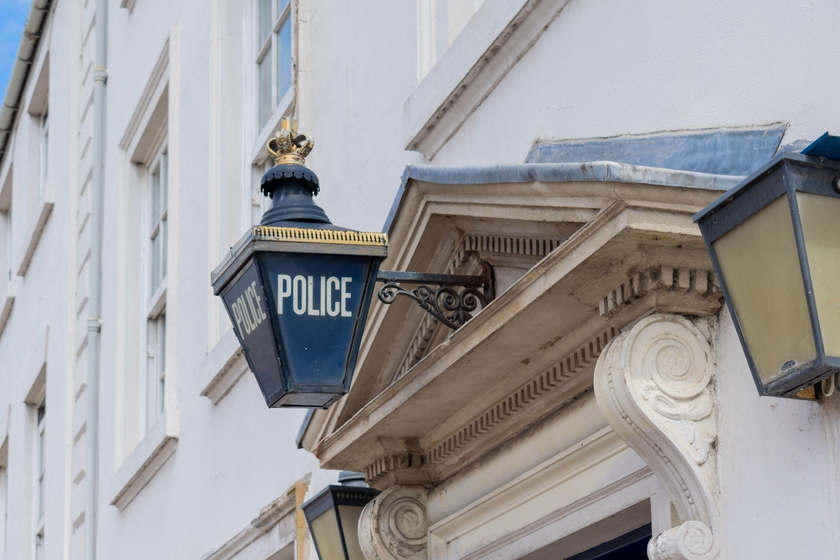Keir Starmer and I have something in common: we both had a beer on 30 April 2021. While Sir Keir drank his with a curry in Durham Miners Hall, I was celebrating overturning the convictions of former Post-Office employees wrongfully prosecuted during the Horizon scandal.
Our case revealed how Post Office investigators had relentlessly pursued the victims of the scandal, discarding evidence of the real culprit (widespread failures in the Post Office’s “Horizon” computer system) to protect the Post Office brand. The Court of Appeal found investigators had violated their basic duties of independence and objectivity, instead pursuing prosecutions for its own ends. It returned the largest “abuse of process” verdict in British legal history. Sitting outside a pub in Lincoln’s Inn, I didn’t realise I’d be witnessing another abuse of powerjust a year later.
This is not to compare the suffering of the Horizon scandal victims to the political travails of the Leader of the Opposition. Sir Keir will survive. Several Post-Office victims did not. But the legal (and democratic) harm is similar: misusing the power of criminal investigation.
Police operational independence is central to a functioning democracy. We, as citizens, need the police to prevent crime, protect our rights, and keep us safe. They can’t do that if they take their orders about who to investigate from the government or its allies. As a previous administration wrote (in introducing the Police Reform and Social Responsibility Act 2011):


The long-held principle of operational independence, where those operating in the office of the constable are able to make independent decisions on how to use their legitimate coercive powers on behalf of the state will continue to remain the cornerstone of the British policing model.”
Durham police have already considered “Keir’s beer” several times. The allegation was first raised (by the Sun) in May 2021. It was brought up again (this time by the Daily Mail) in January 2022. Durham Police investigated and concluded it did “not believe an offence has been established in relation to the legislation and guidance in place at that time”. Contrast with “Partygate”: the Met refused to investigate at all until forced to do so by the threat of legal action and the findings of the putative Gray report.
Durham police’s original conclusion seems correct. Indoor gatherings were allowed at the time if they were “reasonably necessary” for “work purposes”. The Labour Party schedule, leaked to the Mail, seems to show that dinner was ordered for a political meeting between Sir Kier and a local politician. According to Adam Wagner, an expert in Covid law, it would be difficult for police to conclude that such an event was not necessary for work purposes. The Met cleared No 10 staff in relation to a photograph of them drinking wine in the Downing Street garden on the same basis. There is a marked contrast between these events and the birthday, “secret santa”, and karaoke parties which took place in Downing Street.
Durham police’s original assessment was unacceptable to government supporters and the press. Government supporting newspapers, particularly the Mail, Sun and Telegraph, repeatedly devoted their front-pages to the story (even when there was nothing new to report). The government gave its MPs and activists “lines to take”. One MP, Richard Holden, wrote to Durham’s Chief Constable, Jo Farrell (on House of Commons notepaper), to demand she re-open the investigation.
On 6 May Durham police announced they were doing just that, after receiving “significant new information”. If this is true then new inquiries are entirely warranted. Given the context, however, it’s difficult to take the statement at face value. Those pushing the “Beergate” story have been quick to go public with any new evidence uncovered (that’s rather the point). It seems strange that they would hand the most damning piece over to the police without putting it on the front pages. The “new information” may have come from an entirely different source. But it would be a strange co-incidence, given the resources expended by the government’s supporters, if the key evidence was found by someone else.
Holden claimed, himself, to have discovered a “concerning new piece of evidence”. It turns out, however, to be a Facebook invitation to a Zoom quiz that took place several hours before Sir Keir was photographed drinking his beer (there is nothing on the invitation which suggests an in-person component to the event). This seems a rather spurious basis for a new investigation.
Durham police have a history of deference to power. They refused to fine Dominic Cummings, then a senior government advisor, for his (now infamous) Covid infected trips to Durham and Barnard Castle (despite admitting that he likely committed an offence). A week later, they fined two people (not members of the government) for the same thing. It was claimed the decision was based on a policy of not taking retrospective action on lockdown breaches. While Farrell was not prepared to make an exception for a senior government official, she appears to have done so for the leader of the opposition.
This shouldn’t be about politics. I have no party affiliation so no particular dog in this fight. But one’s support for the Labour or Conservative parties should be irrelevant to one’s commitment to democratic norms. The police must protect the public, not wield the law as a weapon against the government’s political enemies. Anything else is an abuse of power. Regardless of the outcome of its investigation, Durham constabulary has serious questions to answer.
Sam Fowles is a constitutional barrister, lecturer at the University of Oxford, and Director of the Institute for Constitutional and Democratic Research. His book, Overruled: Confronting Our Vanishing Democracy in 8 Cases is published on 23 June.

